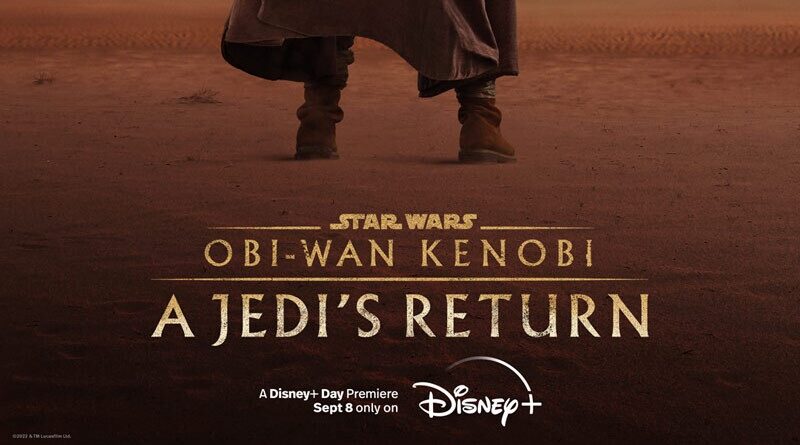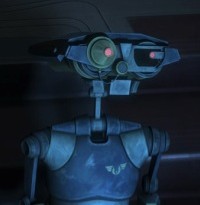Review: Obi-Wan Kenobi: A Jedi’s Return
Last week, Disney+ premiered Obi-Wan Kenobi: A Jedi’s Return, the making-of documentary for the most recent Star Wars live-action series. Many of the quotes and talking points from Ewan McGregor, Hayden Christensen, and Deborah Chow would be familiar to fans who closely followed their promotional appearances prior to the series’ release, including the coverage by Fangirls Going Rogue. (Head writer Joby Harold, who participated in some of the promotional junkets, appears only once.) In its tone and presentation, though, the documentary is clearly meant for the more casual audience who will encounter these types of interview for the first time watching A Jedi’s Return. In addition, the documentary includes extensive behind-the-scenes footage from the production of the series, which is new to all viewers. (As with recent MCU Assembled episodes, no attempt is made to conceal or downplay masks and other Covid protocols during production.) Overall, A Jedi’s Return is well worth the hour to watch.

At FANgirl, we were particularly pleased to find that A Jedi’s Return confirms many of the analytical points we made about Obi-Wan Kenobi on our three podcast episodes of Hyperspace Theories dedicated to the series. Ewan McGregor and Deborah Chow are the primary voices speaking to the story and character decisions. They discuss Obi-Wan’s journey from broken man back to Jedi Master, noting that one of the lessons he must learn is the importance of family, including accepting a more paternal role toward Leia. They emphasize the crucial role Leia plays in helping Obi-Wan rediscover himself, learning to trust in her talents and confidence just as he did with her young father many years earlier. Similarly, they explain that Tala’s past gives her words the credibility to reach beyond Obi-Wan’s own struggle to release his emotions about the tragedies in his past. And actor Kumail Nanjiani specifically refers to his character Haja as a “trickster,” the archetype we had identified for him in Obi-Wan’s journey.
The timing of A Jedi’s Return is intriguing in another regard. At the beginning of September, director Rian Johnson began promoting his new film Glass Onion: A Knives Out Mystery ahead of its premiere at the Toronto International Film Festival. As part of a cover story in Empire magazine, Johnson reaffirmed his characterization of Luke Skywalker in The Last Jedi and doubled-down on prior remarks rationalizing why he rejected Mark Hamill’s concerns about the portrayal, saying “obviously, he created the character on screen, but he’s Mark Hamill, he’s not literally Luke Skywalker.” The following week, A Jedi’s Return includes onscreen comments from Deborah Chow taking the opposite perspective regarding both Ewan McGregor and Hayden Christensen, emphasizing that they have inhabited their characters for decades and understand them better than anyone. At another point, Christensen specifically references his conversations with George Lucas when reflecting on Darth Vader and his destiny as the Chosen One. Although it is unmentioned in A Jedi’s Return, of course, Hamill likewise inhabited the character of Luke Skywalker for three films and decades thereafter, and gained much of his understanding of the character from the process of making the movies with George Lucas. At Star Wars Celebration Anaheim in May, Dave Filoni had spoken about the importance of hiring actors who will embody a character and protect their value to the franchise going forward; previously he had emphasized the invaluable contributions of Hamill to the deepfake performances of Luke Skywalker in The Mandalorian and The Book of Boba Fett. It is difficult not to draw the conclusion that Johnson’s perspective on legacy characters is not shared by the current leadership at Lucasfilm.
Finally, A Jedi’s Return ends on a theme that threads throughout the documentary: the importance of the fans to the success of the Obi-Wan Kenobi series and the franchise as a whole. Using footage of the audience at the world premiere at Celebration Anaheim, as well as additional interview clips filmed at that time, A Jedi’s Return reinforces the idea that the series would never have existed in the first place without the enthusiasm of the fans to see characters like Obi-Wan, Vader and Anakin, and Leia again. From the days of the Expanded Universe to today, there are always voices in the fandom, as well as professional contributors to the franchise, who maintain that Star Wars is better when it focuses on new characters and new stories, rather than the flagship Skywalker Saga and adjacent characters and tales. Obi-Wan Kenobi: A Jedi’s Return is another reminder to be cautious in reaching conclusions about how much of the audience those voices actually speak for.
Related Links
- Obi-Wan Kenobi: Expanding the Monomyth (May 2022)
- Obi-Wan Kenobi: Jedi Master’s Trials (June 2022)
- Obi-Wan Kenobi: Master of Two Worlds (July 2022)











